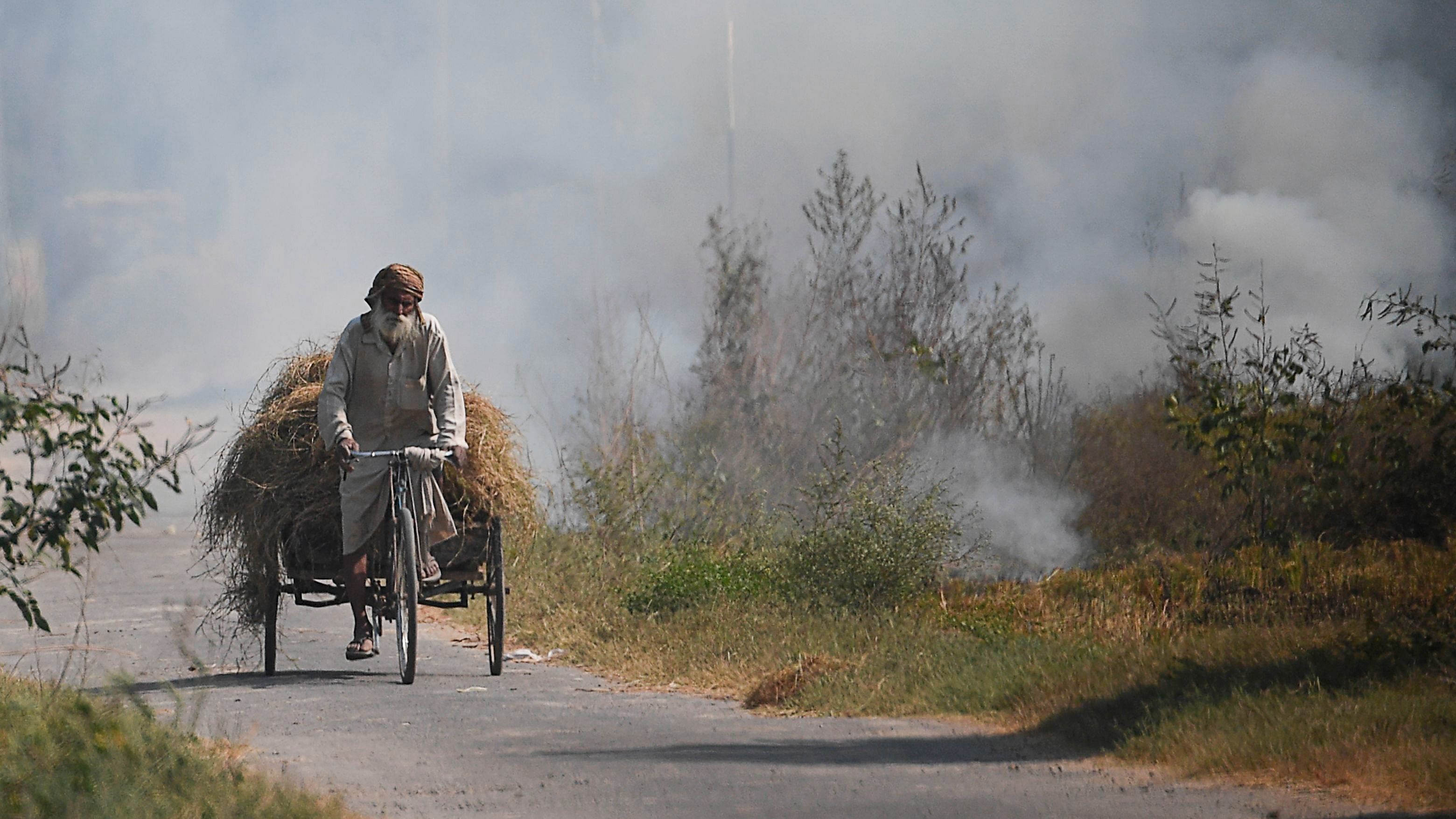
By Rajesh Kumar Singh
Farmers are being encouraged to sell their crop waste rather than burn it to help accelerate progress on curbing fires that spread a deadly, choking smog across key cities.
Smoke from the burning of crop stubble lingers over most of north India for weeks during the cold months of November and December, with air quality deteriorating to hazardous levels in several areas, including the capital New Delhi.
BiofuelCircle, a startup based in the western Indian city of Pune, is attempting to connect farmers to companies that can turn the waste into briquettes that can be burned in power stations, or ethanol for blending with liquid fuels.
“The environmental issues due to crop residue burning are mainly because of the inefficiency of the supply chain,” BiofuelCircle founder Suhas Baxi said. “The business case for building a stable and reliable supply chain is very solid.”
Also Read — Centre's efforts led to decline in stubble burning in Punjab: Union Environment Minister
India wants to convert its 230 million tons of annual farm waste and massive piles of kitchen refuse into energy to help reduce fuel imports and improve air quality. If there was sufficient demand and infrastructure, using the country’s entire supply of crop waste for bio-energy could generate as much as $50 billion of annual revenue, Baxi said in an interview.
But progress has been slow. The lack of a reliable supply chain — from timely procurement, to storage, processing plants and finally a market for the products — has meant that farmers for now continue to burn most of their crop residue. Barely 20-30per cent of farm waste is harnessed, mostly for lower-value products such as briquettes for blending with coal for use in industrial boilers, Baxi said.
“We don’t have the ability to absorb what the farmer is able to give,” he said. “There’s need for mechanization, there’s need for huge storage capacities. There’s investment required in supply chain and that investment will not only solve the problems at hand, but create a bigger opportunity.”
A market for more products including biodiesel, sustainable aviation fuel and compressed biogas is still in its infancy, though there has been some progress. The ethanol percentage of retail gasoline has increased to about 10per cent from just 1.4per cent in 2014, when Prime Minister Narendra Modi started his first term in office.
Modi’s government has also been supportive of tackling stubble burning, offering subsidies to buy machinery to gather crop residue to setting mandates for coal plants to use at least 5per cent biomass.